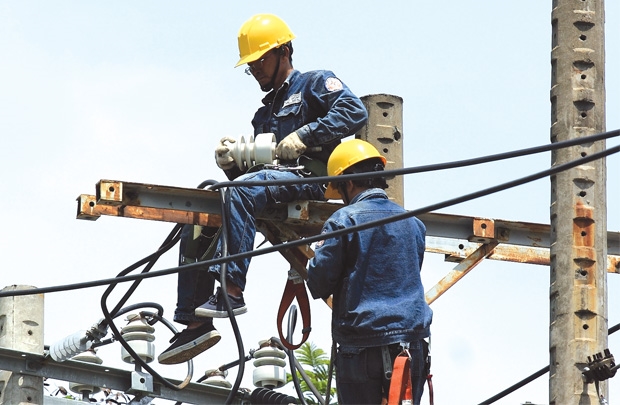VietNamNet Bridge – Former US Secretary of State John Kerry has suggested an optimal solution to ensure power supply for Vietnam’s economic development.

The survey conducted by Kerry and Fulbright University in Vietnam and General Electric Vietnam (GE Vietnam) found that the rapid decline in renewable energy prices, the capability of accessing capital for green works, and the agreement on voluntary cutting of power consumption between clients and suppliers will be effective solutions to replace coal.
The World Bank in 2016 estimated that Vietnam would need 320 billion kwh by 2020 and 690 billion kwh by 2030, which means a growth rate of 16 percent per annum in 2015-2020 and 8 percent per annum until 2030.
Vietnam has been advised to create a power strategy by reconsidering electricity demand to choose suitable sources of energy by 2025.
When comparing the efficiency of coal-fired and gas-fired plants or renewable energy programs, it is necessary to consider the moments for plant operation.
If investors begin programming the building of a coal-fired plant in 2017 and construction starts in 2018, they would able to put the plant into operation by 2023. Meanwhile, it only takes one year to put a solar power plant into operation.
It is also necessary to consider the environment tax when running thermal power plants. Experts believed that a reasonable tax was $31 for every ton of CO2 to be emitted in 2010, and $35 now. If the tax rate is applied, coal producers in Vietnam would have to pay $4.2 billion in 2016 and $10.5 billion prior to 2025.
If so, the production cost of coal-fired plants would be 4.6 cent per kwh higher.
This means that the electricity from renewable sources will have more competitive production costs, if the expenses on carbon emissions and pollution treatment are taken into account.
With its economic development plans, Vietnam has to increase the electricity supply from coal-fired thermal power plants as the hydropower resources are in decline and Vietnam has canceled a plan to build nuclear power plants.
There are concerns that the coal import would increase influences to the payment balance.
Meanwhile, if only Chinese banks lend money to thermal power plants, this means that Vietnam would increase its reliance on imports from China, and that Vietnam would find it difficult to fulfill its commitments on emission reductions.
New thermal power plants are facing strong opposition from people because they produce dust, ash, mercury and acid that poison the air and water.
RELATED NEWS
Wind power investors still waiting for electricity price increase
Investors becoming more interested in solar power
Thanh Lich